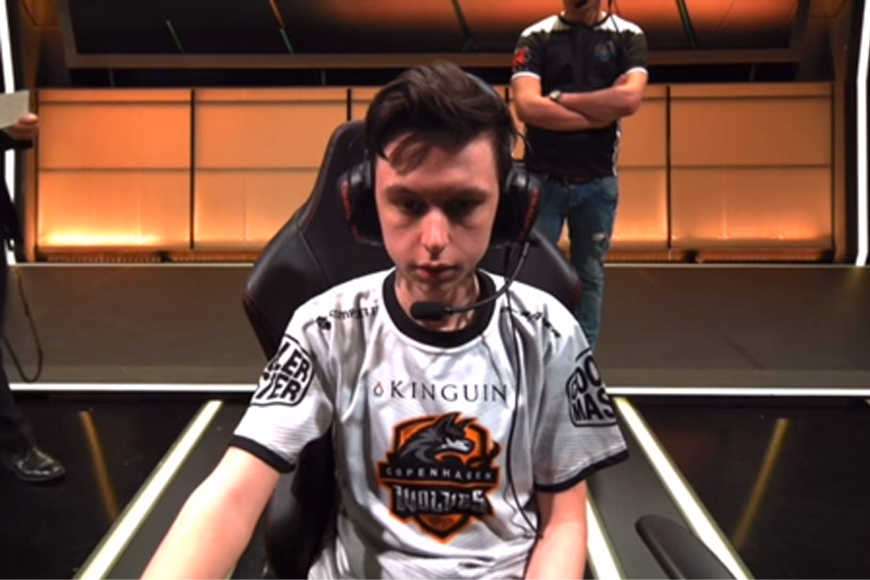Previously at eSports news UK we’ve highlighted player contracts and what they mean for the UK scene – but what about loans? Cameron Peberdy explores the topic.
There’s the possibility of big established eSports teams loaning players onto teams participating in national leagues such as the ESL UK Premiership. Plus, the idea that players from smaller sides could play for bigger side on a temporary basis.
So what could player loans bring to the UK scene?
They could be used as a tool to empower higher division teams at a Challenger and LCS level to utilise their sub players (who may see little to no competitive play) with an opportunity to still play in a competitive environment.
Teams at the Challenger and LCS level have their roster of five, as well as substitutes that sometimes hardly see any play. This is because teams prefer to stick to a solid roster, which creates stronger team synergy.
On the other hand, players in the ESL UK Premiership could be loaned onto bigger teams, giving them a taster of a higher level and encouraging them to reach it in the long run. For example, Renegades Banditos UK mid-laner Caedrel (pictured) was loaned onto the Copenhagen Wolves for a few weeks earlier this year.
In order to better explore the concept of player loans, we asked UK teams what they think about the subject.
Stefan “ioswitch” Heesters, manager of Team Paria, believes sponsorship is key to allowing organisations to better support their players, and implement loans.
“I think it’s a three-way thing to be honest,” he says. “Sponsors need to support organisations, so that as an organisation we can support the players.
“On the other side of this, players must support the organisation, so that the organisations can seem more professional to sponsors – especially those not in the gaming market. This is so that sponsors can see an opening into the industry.”
Tom Villiers, manager for Choke Gaming, shared his view.
“If contracts become standardised, that kind of thing could have potential,” he explains. “But it needs to be standardised across the board. All eight teams across the ESL UK Premiership need to be contracted, in my opinion.
“I don’t know if it will happen or not, but it’s interesting. It happens in other sports. In football you have the younger squads like the under 16s and under 21s and stuff like that. So there’s a big pool of talent that could be loaned out.
“However, in an eSports team with five players that are all doing well, you’re not really going to want to loan one out. It’s good for the player but then the team will have to look for a new player.
“Players look down on being subs in eSports as well. They want to be playing for their team. So you couldn’t have 20 players and 16 subs, it wouldn’t work. There’s no way of working that out.
“It will be a long time before eSports has that kind of investment and endorsement that’s football has. I do think in ten or 20 years time it will get bigger than general sports.”
In the NA eSports scene, large organisations like Team Liquid (formerly Curse) had the Curse Academy – a second team built to foster talent. That was renamed to Gravity and later became Echo Fox.
Equally, in Europe, Fnatic is forming a second League of Legends team to participate in the Challenger Series.
These are both examples of how larger organisations can create opportunities for players in the lower tier, generate income (selling said teams at a later date) and helping to grow eSports and the number of competitive teams in the scene.
Merging teams can also have benefits. For example, if a team in the ESL UK Premiership was to merge with Fnatic, they would gain the benefit of having access to Fnatic’s vast network of sponsors.
This would enable the UK org to better support their players through gaming gear, a regular wage, travel to national and international events and player development through the tools and methods that Fnatic already implement with their LCS team.
Fnatic would gain a development program in which they can effectively nurture the next generation of top level players. Fnatic would be investing in the development of other players, giving them a greater career path.
Stefan adds: “As an organisation, Paria do everything we can for our players, but I don’t agree that player loans would be better by default, because a lot of organisations that are comparable to Paria would become non existent in higher leagues. This would cause those leagues to become even smaller.
“This means less exposure overall, especially through streaming. I don’t think loaning a player for a long period of time would be interesting to any organisation, in all honesty.”
What do you think? Could player loans be beneficial to UK eSports?
Could better use of player loans in eSports improve pros' career paths?


